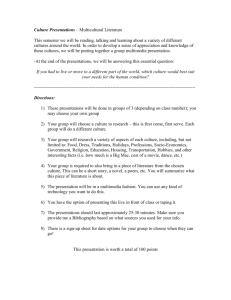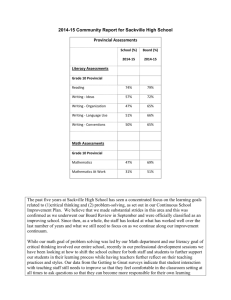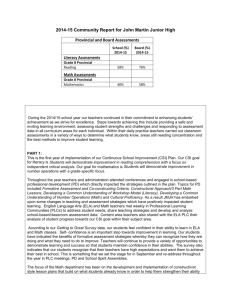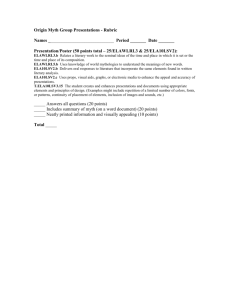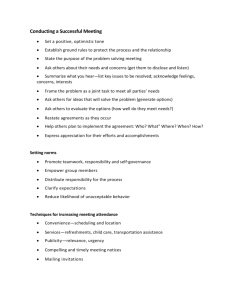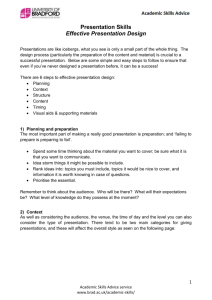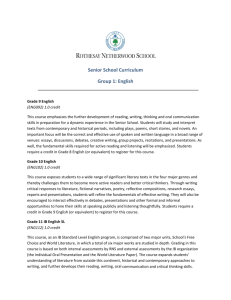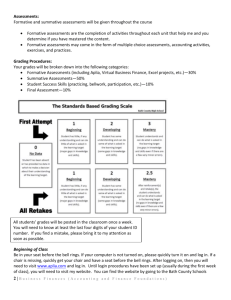Infotech 8 Learning Outcomes
advertisement
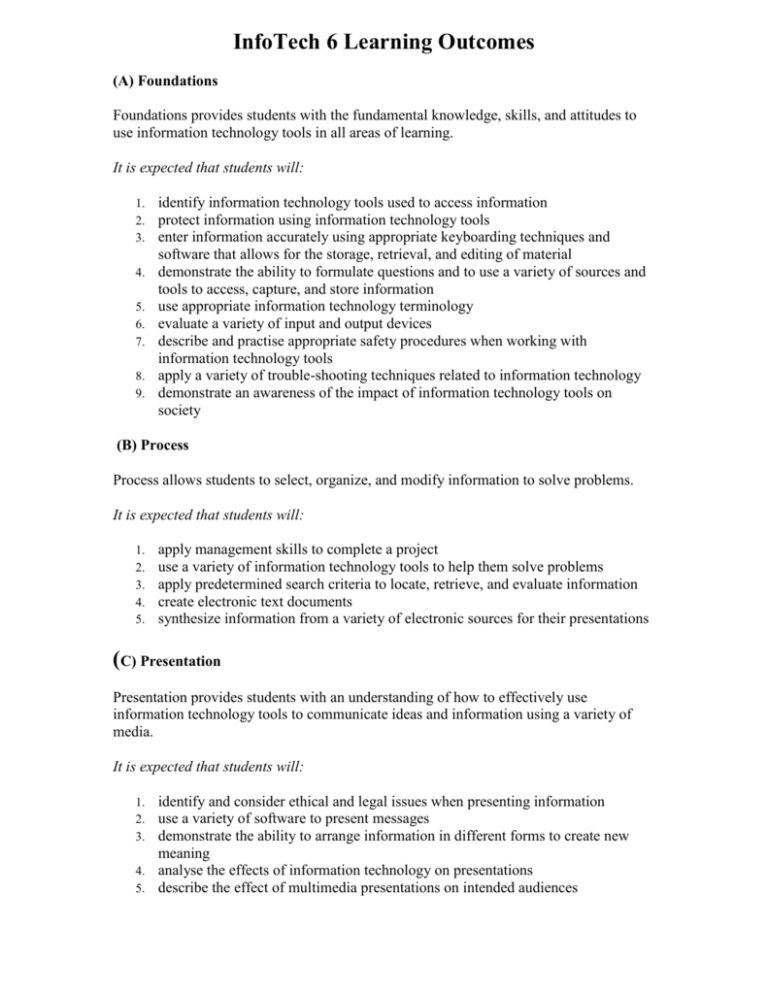
InfoTech 6 Learning Outcomes (A) Foundations Foundations provides students with the fundamental knowledge, skills, and attitudes to use information technology tools in all areas of learning. It is expected that students will: 1. 2. 3. 4. 5. 6. 7. 8. 9. identify information technology tools used to access information protect information using information technology tools enter information accurately using appropriate keyboarding techniques and software that allows for the storage, retrieval, and editing of material demonstrate the ability to formulate questions and to use a variety of sources and tools to access, capture, and store information use appropriate information technology terminology evaluate a variety of input and output devices describe and practise appropriate safety procedures when working with information technology tools apply a variety of trouble-shooting techniques related to information technology demonstrate an awareness of the impact of information technology tools on society (B) Process Process allows students to select, organize, and modify information to solve problems. It is expected that students will: 1. 2. 3. 4. 5. apply management skills to complete a project use a variety of information technology tools to help them solve problems apply predetermined search criteria to locate, retrieve, and evaluate information create electronic text documents synthesize information from a variety of electronic sources for their presentations (C) Presentation Presentation provides students with an understanding of how to effectively use information technology tools to communicate ideas and information using a variety of media. It is expected that students will: identify and consider ethical and legal issues when presenting information use a variety of software to present messages demonstrate the ability to arrange information in different forms to create new meaning 4. analyse the effects of information technology on presentations 5. describe the effect of multimedia presentations on intended audiences 1. 2. 3. SUGGESTED ASSESSMENT STRATEGIES Teachers determine the best assessment methods for their students. The assessment strategies in this document describe a variety of ideas and methods for gathering evidence of student performance. The assessment strategies for a particular organizer always include specific examples of assessment strategies. Some strategies relate to particular activities, while others are general and could apply to any activity. These specific strategies may be introduced by a context statement that explains how students at this age can demonstrate their learning, what teachers can look for, and how this information can be used to adapt further instruction. About the Provincial Learning Assessment Program The Provincial Learning Assessment Program gathers information on students' performance throughout the province. Results from these assessments are used in the development and revision of curricula and provide information about teaching and learning in BC. Where appropriate, knowledge gained from these assessments has influenced the assessment strategies suggested in this IRP. About Assessment in General Assessment is the systematic process of gathering information about students' learning in order to describe what they know, are able to do, and are working toward. From the evidence and information collected in assessments, teachers describe each student's learning and performance. They use this information to provide students with ongoing feedback, plan further instructional and learning activities, set subsequent learning goals, and determine areas requiring diagnostic teaching and intervention. Teachers base their evaluation of a student's performance on the information collected through assessment. They use their insight, knowledge about learning, and experience with students, along with the specific criteria they establish, to make judgments about student performance. Teachers determine: the purpose, aspects, or attributes of learning on which to focus the assessment; when to collect the evidence; and the assessment methods, tools, or techniques most appropriate to use. Assessment focusses on the critical or significant aspects of the learning to be demonstrated by the student. Students benefit when they clearly understand the learning goals and learning expectations. The assessment of student performance is based on a wide variety of methods and tools, ranging from portfolio assessment to pencil-and-paper tests. Appendix D includes a more detailed discussion of assessment and evaluation.




